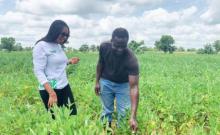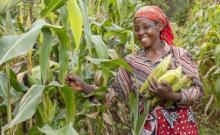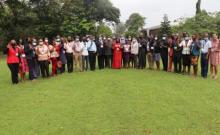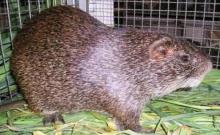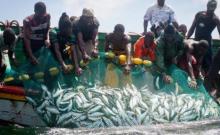“The soil is as important as the food that grows on it, so if you must have a good harvest, care about the soil too”.
… read-moreAgriculture
Global population is expected to increase to 9 billion by 2050, with youth (aged 15–24) accounting for about 14 percent of this total. While the world’s youth cohort… read-more
Women contribute about 70% of Ghana’s agricultural production, marketing and processing, yet they face diverse challenges. With the ongoing pandemic affecting every… read-more
More than 30 Nigerian scientists have received training in the skills needed to effectively communicate with policy makers and the public about the benefits of using… read-more
In Ghana and other parts of West Africa, the greater cane rat popularly known as grasscutter is a highly patronized delicacy for many due to its great taste and… read-more
Ghana’s ministry of fisheries and aquaculture is waging war against illegalities on the country’s territorial waters after a successful implementation of its two… read-more


